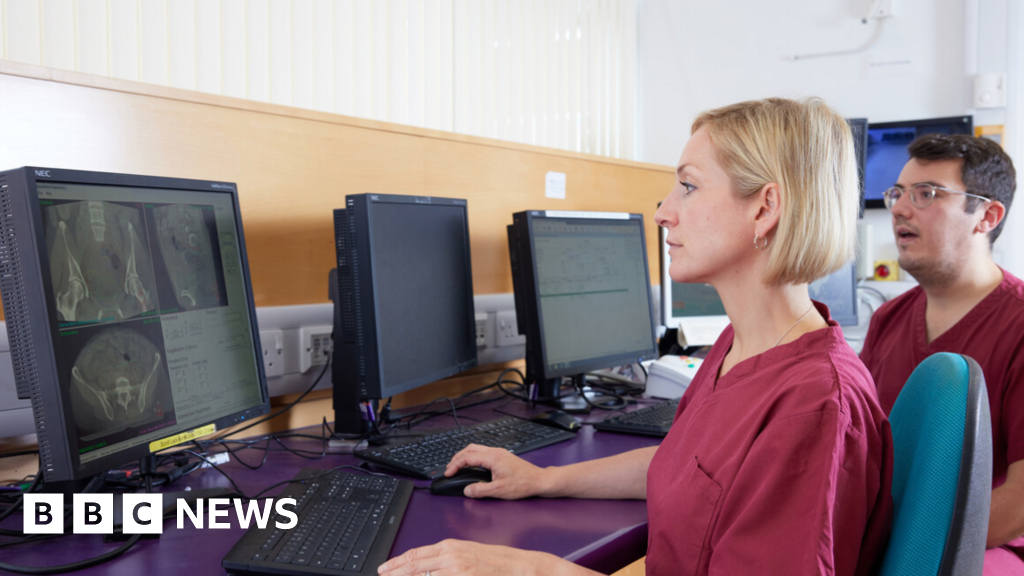Researchers who aim to improve cancer treatment by using artificial intelligence to simulate clinical trials have been given £5.9m in funding by a charity.
The Cancer Research UK grant will go to a project led by the University of Manchester and The Christie cancer hospital which will test the effectiveness of radiotherapy treatments on a group of “virtual” patients, based on real-life data.
Lead research professor Rob Bristow said the simulated trials would help make research “faster, safe and less expensive” than large-scale clinical studies.
Some of the earliest research into radiotherapy was pioneered by The Christie hospital and the cancer charity in the 1920s.
The charity said the treatment works by using X-ray radiation to kill cancer cells by irreversibly damaging their DNA.
An estimated 44,000 people are diagnosed with cancer each year in the north-west of England, according to the charity’s data.
The £5.9m will help fund the project for five years.
Groups of patients are created virtually based on real-data by an AI computer programme, with treatments or devices tested on them in simulated trials.
Researchers said this allowed for ideas to be tested at a faster rate than traditional trials which involve real patients.
The work of the team in Manchester is to focus on investigating patient-specific genetics and tumours, as well as comparing a new form of proton beam therapy with standard radiotherapy for lung cancer patients.
The grant was given to the city by the charity as “one of just seven centres of excellence in a UK-wide network that will accelerate advances in radiotherapy research”, a Cancer Research spokeswoman said.
Martin Storey, who had radiotherapy to cure his lung cancer in a clinical trial after being diagnosed in 2009, said he was delighted to see funding going towards advancing the treatment.
The retired delivery driver from Wythenshawe added: “Not everyone survives lung cancer, and I was one of the lucky ones to be able to go on a trial.
“Now thanks to research I’ve lived to be a great-grandad.
“I think artificial intelligence is the future and if more can be done with virtual trials to improve the effectiveness of clinical trials, then it will help more patients, and more people will be able to survive their cancer like I did.”

